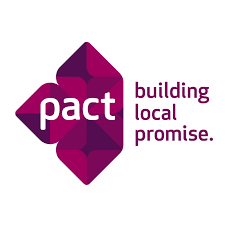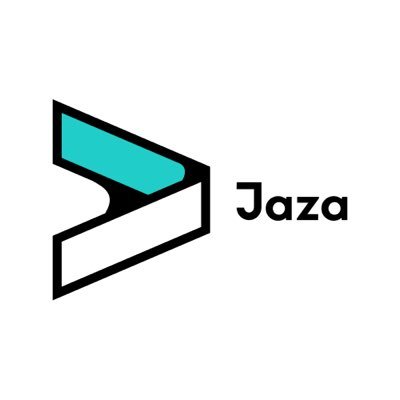
Pandemic Fund Project Coordinator at Amref Health Africa Tanzania
Job Role Insights
-
Date posted
2025-11-27
-
Closing date
2025-12-05
-
Hiring location
Dar es Salaam
-
Career level
Middle
-
Qualification
Bachelor Degree
-
Experience
3 Years
-
Quantity
1 person
-
Gender
both
-
Job ID
125644
Job Description
Amref Health Africa -Tanzania is a non-profit public health organization that has been supporting the Government of Tanzania in addressing public health issues, including maternal and child health, HIV, TB, Malaria, and nutrition, since 1987. Amref Health Africa in Tanzania collaborates with and receives guidance from the Tanzania Ministry of Health, Community Development, Gender, Elderly, and Children, the Zanzibar Ministry of Health, and the President’s Office, Regional Authority, and Local Government (PORALG). Amref Health Africa -Tanzania has the following vacancies and invites suitable applicants for the following positions to be filled:
Amref Health Africa- Tanzania is seeking a qualified and motivated Pandemic Fund Project Coordinator to lead the implementation of the Pandemic Fund Project. The project aims to strengthen Tanzania’s early warning and disease surveillance systems, improving the country’s ability to detect, verify, and respond rapidly to public health threats.
The Coordinator will oversee the planning, implementation, and reporting of all project activities and will manage day-to-day project operations. The role involves coordinating key project activities, supporting improvements in data quality and information sharing, and ensuring strong collaboration with the Ministry of Health (MoH), PORALG, WHO, regional and district health authorities, and development partners. The Coordinator will also be responsible for monitoring progress, reporting, and fostering learning to enhance the country’s preparedness and response to public health threats.
Duties & Key Responsibilities
- Project Coordination and Management
- Lead the development and execution of annual and quarterly workplans, ensuring alignment with project goals and national priorities.
- Oversee day-to-day project operations, ensuring efficient coordination of all activities at national, regional, and district levels.
- Manage project budgets, ensuring timely implementation of activities and adherence to donor guidelines and Amref financial policies.
- Ensure timely and high-quality submission of progress reports, financial reports, and technical updates to donors, MoH, and Amref leadership.
- Coordinate procurement plans, logistics, and distribution of project materials, and follow up on service delivery.
- Ensure compliance with donor contractual obligations, audit requirements, and Amref operational protocols.
- Supervise project staff, field teams, consultants, and implementing partners, ensuring accountability and high performance.
- Technical Oversight and Capacity Strengthening
- Coordinate Data Quality Assessment (DQA) field visits to strengthen the accuracy, reliability, and completeness of surveillance data.
- Lead mentorship and on-the-job training sessions for surveillance personnel, laboratory staff, regional/district coordinators, and Rapid Response Teams.
- Facilitate development and review of Standard Operating Procedures (SOPs), Terms of Reference (ToRs), training manuals, and other guiding documents.
- Provide technical support for improving Integrated Disease Surveillance and Response (IDSR) systems, digital reporting platforms, and cross-border surveillance coordination.
- Support capacity-building workshops on epidemic preparedness, event-based surveillance, and risk communication.
- Promote harmonization of surveillance tools, guidelines, and reporting systems across all levels of the health sector.
- Systems Strengthening and Digital Transformation
- Support the design, development, testing, and rollout of digital platforms and monitoring dashboards for enhanced data collection, visualization, and reporting.
- Document system user requirements, ensure proper validation, and participate in user-acceptance testing (UAT) for digital tools.
- Work with IT teams, MoH, and technical partners to integrate new platforms into existing national systems (e.g., DHIS2, IDSR reporting tools).
- Promote interoperability of digital systems to ensure real-time information sharing and improved outbreak detection and verification.
- Coordinate capacity building for health workers on the use of digital tools, mobile reporting applications, and analytics platforms.
- Monitor functionality, performance, and sustainability of deployed systems and address identified gaps promptly.
- Stakeholder Engagement and Partnership Collaboration
- Serve as the primary point of contact between Amref and partners, including MoH, PORALG, WHO, CDC, UNICEF, and regional/district health authorities.
- Ensure all project activities align with national policies, the National Action Plan for Health Security (NAPHS), and International Health Regulations (IHR 2005).
- Organize and participate in technical working groups, coordination meetings, and stakeholder consultations.
- Facilitate consensus-building among diverse partners, ensuring shared ownership and sustainability of project interventions.
- Strengthen collaboration with RHMTs, CHMTs, research institutions, and civil society organizations to enhance surveillance capacity.
- Represent Amref in high-level forums, joint review missions, and national-level pandemic preparedness platforms.
- Monitoring, Evaluation, Accountability, and Learning
- Develop and implement a comprehensive M&E framework to track progress, outputs, and outcomes of all project components.
- Conduct regular monitoring visits to regional and district sites to assess implementation fidelity and provide technical backstopping.
- Ensure gender-responsive, inclusive, and equity-focused data collection and reporting to address disparities in public health response.
- Document best practices, innovations, case studies, and lessons learned for continuous improvement of surveillance systems.
- Facilitate learning events, review workshops, and knowledge-sharing sessions among stakeholders.
- Prepare high-quality progress updates, analytical reports, and evidence briefs for internal and external audiences.
- Use monitoring data to inform decision-making, refine implementation strategies, and improve overall project performance.
- Strengthening National Preparedness and Rapid Response
- Support enhancement of early warning systems, including event-based surveillance, community-based reporting, and digital alerts.
- Facilitate coordination and readiness of Rapid Response Teams (RRTs) at national, regional, and district levels.
- Promote the integration of field data, laboratory findings, and epidemiological intelligence to support rapid outbreak verification.
- Contribute to simulation exercises, outbreak investigations, and after-action reviews to improve preparedness.
Ensure timely sharing of critical information to enable swift detection and response to potential health threats.
Qualifications
Qualifications, Experience & Skills Required:
- Bachelor’s degree in Public Health, Environmental Health, Health Sciences, Health Program Management, or a related health field from a recognized university.
- A master’s degree in public health, Epidemiology, or a related discipline is an added advantage.
- Minimum of 3 years’ experience in public health programme coordination, with emphasis on surveillance systems, outbreak response, or health information systems.
- Strong knowledge of disease surveillance and data quality assessment methods.
- Proficiency in computer skills (MS Office Suite).
- Proven experience in stakeholder engagement, project planning, reporting, and results-based monitoring.
- Experience coordinating training or mentorship programmes for health surveillance personnel is desirable.
Knowledge, Skills, And Competencies
- Strong understanding of public health, epidemiology, disease surveillance, IDSR, and early warning systems.
- Familiarity with IHR (2005), NAPHS, digital health systems (e.g., DHIS2), and data quality principles.
- Knowledge of outbreak investigation, laboratory systems, and Tanzania’s health governance structures.
- Project management, budgeting, and coordination skills.
- Ability to conduct DQAs, analyze data, and develop SOPs and training materials.
- Strong monitoring, evaluation, reporting, and digital systems support skills.
- Ability to supervise teams, manage partnerships, and prioritize multiple tasks.
- Strong decision-making and problem-solving abilities.
- Excellent written and verbal communication.
- Strong facilitation, presentation, and stakeholder engagement skills.
- Ability to identify system gaps, interpret data, and recommend improvements.
- High integrity, professionalism, accountability, and teamwork.
- Ability to work independently, under pressure, and in dynamic environments.
- Commitment to gender equity and inclusiveness.
Additional Information
Please include a cover letter that highlights why you believe you are an ideal candidate for this role, along with your CV showcasing your relevant skills and experience. The application deadline is Friday, December 5 2025.
Amref Health Africa does not require applicants to pay any money at whatever stage of the recruitment and selection process and has not retained any agent in connection with recruitment. Although Amref may use different job boards from time to time to further spread its reach for applicants, all open vacancies are published on our website under the Vacancies page and on our official social media pages. Kindly also note that official emails from Amref Health Africa will arrive from an @amref.org address.
Amref Health Africa is committed to safeguarding and promoting the welfare of children, young people and vulnerable adults and expects all staff to share this commitment. Amref Health Africa is is dedicated to diversity and is an equal-opportunity employer with a non-smoking environment policy.
Interested in this job?
This job has expired
Share this opportunity
Help others find their dream job



